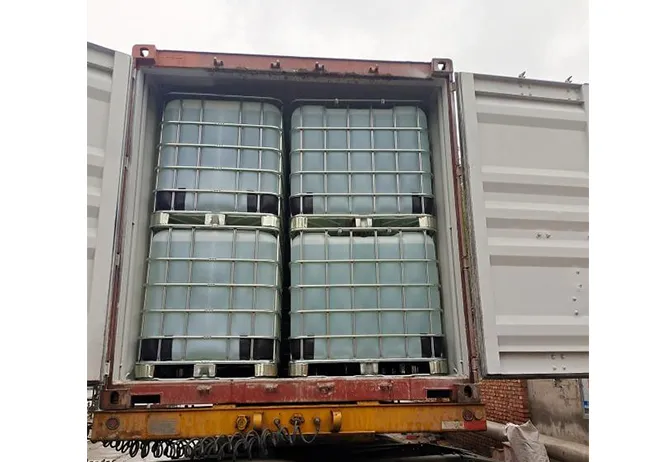
A Comprehensive Guide to Chemicals Used in Mining Operations and Processing Techniques
An Overview of Mining Chemicals and Their Role in the Industry
Mining is an essential industry that serves as the backbone for various sectors, including construction, manufacturing, and energy production. A critical aspect of modern mining operations involves the use of specialized chemicals that enhance the efficiency of extraction processes and ensure environmental sustainability. Understanding the role of these chemicals is vital for both mining professionals and stakeholders.
What Are Mining Chemicals?
Mining chemicals are substances used in various mining processes, including exploration, extraction, and refining. These chemicals play significant roles in both the separation of minerals from ores and the overall efficiency of mining operations. Common categories of mining chemicals include flotation reagents, grinding aids, leaching agents, and anti-fogging agents, among others.
Key Types of Mining Chemicals
1. Flotation Reagents Flotation is a widely used method for separating valuable minerals from ore. Flotation reagents, such as collectors, frothers, and modifiers, are crucial in this process. Collectors are hydrophobic agents that selectively bind to the surface of target minerals, while frothers help stabilize the bubbles formed during flotation, allowing for better separation.
2. Leaching Agents Leaching involves the dissolution of valuable metals from ores using chemical solvents. Common leaching agents include cyanide for gold extraction and sulfuric acid for copper. The choice of leaching agent can significantly influence the efficiency and environmental impact of the extraction process.
3. Grinding Aids During mineral processing, ores must be crushed and ground to liberate valuable materials. Grinding aids are chemicals that improve the efficiency of the grinding process, leading to increased throughput and reduced energy consumption. These aids can enhance the performance of mills by reducing friction and preventing the buildup of particles.
4. Flocculants and Coagulants In the sedimentation and dewatering stages of mineral processing, flocculants and coagulants are used to aggregate fine particles and facilitate their removal. These chemicals improve the clarity of process water, reduce waste volumes, and enable the recycling of water in the mining operations.
mining chemicals handbook

Environmental Considerations
The use of mining chemicals must be approached with caution due to potential environmental impacts. Proper management and disposal of these chemicals are critical to minimize the risk of contamination of soil and water resources. Many mining companies are now adopting greener alternatives and advanced technologies to reduce the environmental footprint of their chemical use.
Regulatory frameworks in various regions necessitate adherence to strict safety and environmental standards. This has prompted companies to innovate in their chemical processes, leading to the development of biochemicals and less toxic alternatives. Sustainable practices not only comply with regulations but also enhance a company's reputation and acceptance in local communities.
The Future of Mining Chemicals
The future of mining chemicals is likely to be shaped by ongoing research and development aimed at improving efficiency while minimizing environmental harm. Innovations such as bio-leaching, which utilizes microorganisms to extract metals from ores, are gaining traction. Furthermore, advancements in nanotechnology may lead to the creation of more effective and selective compounds that can further enhance mineral extraction processes.
Collaboration between mining companies, chemical manufacturers, and environmental agencies will be crucial in driving the transition to more sustainable mining practices. Initiatives that focus on recycling and reusing mining chemicals will also play a significant role in the industry's evolution.
Conclusion
Mining chemicals are indispensable to the efficient and effective extraction of minerals. As the industry continues to face challenges such as operational costs, environmental regulations, and social responsibilities, the role of these chemicals becomes increasingly critical. By prioritizing sustainable practices and innovations, the mining sector can achieve a balance between productivity and environmental stewardship, defining a path toward a more responsible future in mineral resource management. Understanding the dynamics and implications of mining chemicals is essential for anyone involved in this ever-evolving industry.
-
Pure Sodium Dichloroisocyanurate Dihydrate | Powerful DisinfectantNewsAug.29,2025
-
Industrial Chemicals: Quality & Purity for Every IndustryNewsAug.28,2025
-
Nitrile Rubber Honoring Strict Production StandardsNewsAug.22,2025
-
Aspartame Ingredients Honoring Food Safety ValuesNewsAug.22,2025
-
Fertilizer for Balanced Plant NutritionNewsAug.22,2025
-
Cyanide Gold Processing with High Purity AdditivesNewsAug.22,2025
-
Formic Acid in Textile Dyeing ApplicationsNewsAug.22,2025
Hebei Tenger Chemical Technology Co., Ltd. focuses on the chemical industry and is committed to the export service of chemical raw materials.
-

view more DiethanolisopropanolamineIn the ever-growing field of chemical solutions, diethanolisopropanolamine (DEIPA) stands out as a versatile and important compound. Due to its unique chemical structure and properties, DEIPA is of interest to various industries including construction, personal care, and agriculture. -

view more TriisopropanolamineTriisopropanolamine (TIPA) alkanol amine substance, is a kind of alcohol amine compound with amino and alcohol hydroxyl, and because of its molecules contains both amino and hydroxyl. -

view more Tetramethyl Thiuram DisulfideTetramethyl thiuram disulfide, also known as TMTD, is a white to light-yellow powder with a distinct sulfur-like odor. It is soluble in organic solvents such as benzene, acetone, and ethyl acetate, making it highly versatile for use in different formulations. TMTD is known for its excellent vulcanization acceleration properties, which makes it a key ingredient in the production of rubber products. Additionally, it acts as an effective fungicide and bactericide, making it valuable in agricultural applications. Its high purity and stability ensure consistent performance, making it a preferred choice for manufacturers across various industries.





